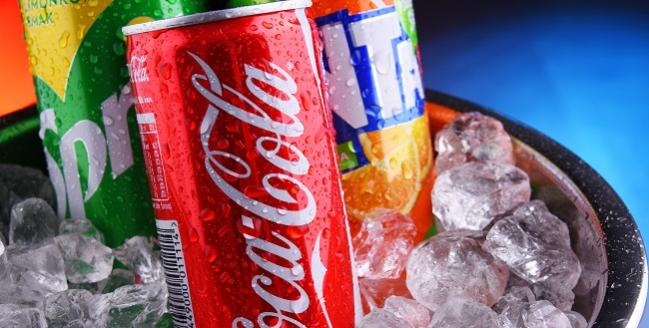Both Sugary and Artificially Sweetened Drinks Linked to CVD
The perfect beverage for human consumption remains water, with unsweetened tea or coffee as close seconds, an expert says.

People who think they’re making a healthier choice by reaching for artificially sweetened drinks over those containing sugar may be wrong, according to a French population-based study that found no difference in risk of developing CV disease.
“In this cohort, higher intakes of sugary drinks and [artificially sweetened beverages] were associated with a higher risk of CVD, suggesting that [they] might not be a healthy substitute for sugary drinks,” write PhD student Eloi Chazelas (Sorbonne Paris Nord University, France) and colleagues.
Compared with people who did not consume sweetened soft drinks or juice, those who reported high intakes of them were more likely to develop stroke, TIA, MI, or ACS and to undergo angioplasty, no matter whether the beverages were sweetened with sugar (HR 1.20; 95% CI 1.04-1.40) or artificial sweeteners (HR 1.32; 95% CI 1.00-1.73).
“We know that sugar sweetened beverages are harmful, and we've known for some time that there have been some signals of harm from artificially sweetened beverages, too,” commented Andrew Freeman, MD (National Jewish Health, Denver, CO), who was not involved in the study. “The perfect beverage for human consumption remains water. Period. Unsweetened tea or unsweetened coffee are a close second.”
Eat, Drink What You Can Pronounce
For the study, published as a research letter October 26, 2020, in the Journal of the American College of Cardiology, Chazelas and colleagues examined data on 104,760 participants in the NutriNet-Santé study. Begun in 2009, the study tracks online questionnaires and dietary records filled out by the participants every 6 months regarding their eating habits, physical activity, socioeconomic status, and body size. The cohort was more than 75% female, and the median follow-up time was 6.6 years.
“Sugary drinks” were defined as beverages containing 5% or more sugar and included soft drinks, syrups, 100% juice, and fruit drinks. Artificial sweeteners included aspartame, sucralose, and natural sweeteners such as stevia. Participants were divided into nonconsumers, low consumers, and high consumers of the drinks.
Even after adjustment multiple confounders, including body mass index, smoking status, physical activity, and early CV disease, the sugary and artificially sweetened beverage drinkers had higher risk of CV disease than those who did not consume those types of drinks.
If we were intended to drink Diet Coke, all the lakes and rivers would be filled with it. Andrew Freeman
While the new study does not prove causal effects of sugar or artificial sweeteners on adverse health outcomes, Freeman said evidence is accumulating on the potential dangers of sweeteners, including one recent study that found that diet sodas were associated with an increased risk of stroke in women.
“At the end of the day, it’s just more evidence that you should really eat and drink what you can pronounce,” he said. “If we were intended to drink Diet Coke, all the lakes and rivers would be filled with it.”
Freeman said it’s also worth considering that a lifestyle that includes frequently consuming caffeinated soft drinks, for example, could be a marker for other unhealthy habits that need to change, such as overall diet.
Chazelas and colleagues say the new data “provide additional arguments to fuel the current debate on taxes, labeling, and regulation of sugary drinks and [artificially-sweetened beverages].” In the United States, the US Food and Drug Administration mandates that standard Nutrition Facts labels include the amount of added sugar to differentiate it from inherent natural sugars, such as those in fruit, a handful of cities across the country charge a “soda tax” aimed at incentivizing healthier options. A number of other countries such as Mexico, Chile, and the United Kingdom have also passed nationwide levies on sweetened beverages.
L.A. McKeown is a Senior Medical Journalist for TCTMD, the Section Editor of CV Team Forum, and Senior Medical…
Read Full BioSources
Chazelas E, Debras C, Srour B, et al. Sugary drinks, artificially-sweetened beverages, and cardiovascular disease in the NutriNet-Santé Cohort. J Am Coll Cardiol. 2020:2175-2177.
Disclosures
- Chazelas and Freeman report no relevant conflicts of interest.


Comments